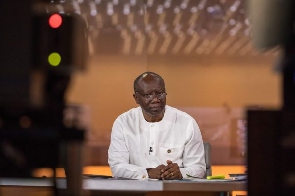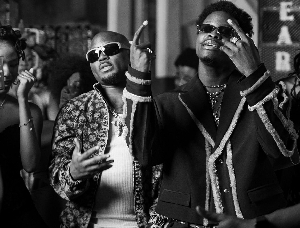The commercial component of Ghana’s total external debt has exceeded 50 percent— which is more than double the share two decades ago when the country was classified as a Highly Indebted Poor Country (HIPC).
According to the Finance Ministry’s 2020 Public Debt Statistical Bulletin, 51.1 percent of the country’s GH¢141.8 billion external debt stock is owed to commercial lenders, with the regular issuance of Eurobonds largely driving this development.
Between 2017 and 2020, the stock of outstanding Eurobonds increased by more than GH¢42 billion, from GH¢16.3 billion to GH¢58.6 billion.
The country raised US$2 billion in 2018, US$3 billion in 2019 and US$3 billion in 2020 through Eurobonds. Just last week, another US$3 billion worth of Eurobonds were sold by the government on the international capital market.
The rise in the commercial component of Ghana’s external debt translates into a more expensive debt servicing cost, as commercial loans cost more than the concessional credit that is usually obtained from multilateral institutions like the World Bank, International Monetary Fund and African Development Bank.
Due to Ghana’s middle-income status, the country has seen reduced access to concessional loans, which has fuelled the rapid increase in commercial borrowing.
Rising external commercial borrowing has meanwhile contributed to making interest payments the biggest expenditure item on government’s books for 2021.
According to the 2021 budget statement presented to lawmakers last month, government will spend GH¢35.9 billion as interest payments, whereas workers’ compensation is expected to amount to GH¢30.3 billion.
Compensation paid to workers has historically been government’s biggest expenditure item, but rising public debt since the late 2000s has rapidly pushed up interest spending, which has now eclipsed the compensation bill.
In the 2021 budget, government sought parliamentary approval to spend GH¢110 billion on its programmes and initiatives, with 31 percent of the amount dedicated to debt servicing.
Since 2013, the country has turned to Eurobonds to finance the fiscal deficit as well as refinance more expensive domestic debts.
Government has set its sights on bringing down the fiscal deficit from 11.7 percent to 9.5 percent of GDP in 2021 in a bid to achieve fiscal consolidation and help contain the rate of debt accumulation.
Business News of Wednesday, 7 April 2021
Source: business24.com.gh













